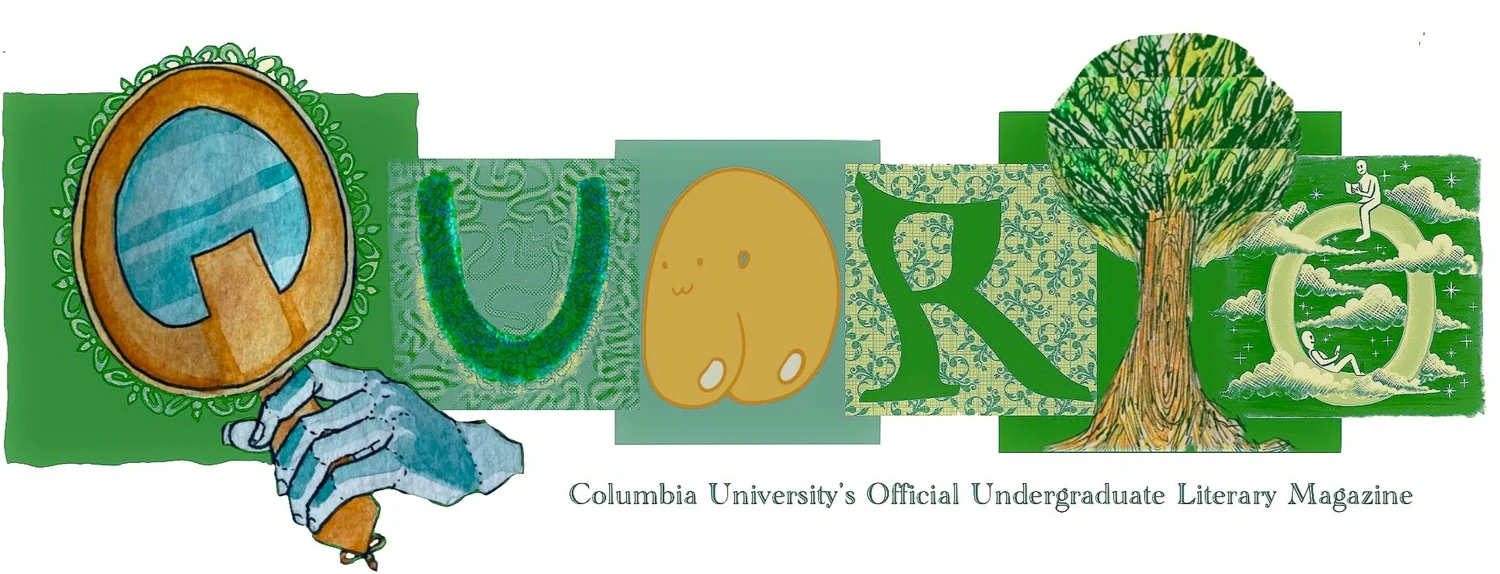I was quite young when I saw my grandmother’s bare body for the first time.
She stood in front of the mirror and buttoned her nightshirt. I sat propped up with feathery
pillows that flattened into the wall on my side of the bed, the side where my grandfather once
slept. A breakfast tray in front of me with unfamiliar oatmeal growing cold and congealed
before my grandma learned to make it the way I liked it, with salt instead of sugar, which was
the way she’d liked it all along.
Her breasts hung low and large.
She was not embarrassed, but felt they warranted an explanation.
She told me how she was from a long line of women with bones too big, soft skin stretched too
far.
She used to stare at her own grandmother’s naked reflection, her big drooping bosom, her
stomach that cascaded down to her knees. She couldn’t imagine what a body would have to go
through to become like that.
She turned away from the mirror and gestured toward herself. And now, look at me!
The nightshirt was my grandfather’s too, the same shade of brownish red as our bedsheets and
her lipstick and the nosebleeds I sometimes got at night that left an invisible stain.
When he died, I don’t really remember. I remember telling my grandmother that I could be her
husband instead. I was in the backseat of the car while my mom drove us all over the train tracks
toward home. The sun was setting fast and I could not see the reaction on my grandma’s face as
she looked out the window of the passenger seat at the darkening sky.
My mom taught me that my grandmother’s breasts were bigger than they should be and that is
how she knew he loved her. At a steakhouse, or a poker game, or one of the select smokey
settings I could picture from their newlywed years in the 50s, my grandmother had pulled her
tight sweater away from her chest in shame. No, my grandfather had said. I like how you are.
This story passed from her to my mother to me.
I was quite young still when I cried for my own body for the first time. Aeropostale shirts my
friends wore that hugged too tightly to my tummy and pulled too long, down to my knees. I
remember girls comparing numbers on the scale in third grade and learning mine was too high,
learning my hunger was too great, learning thighs shouldn’t brush against each other when
walking and nobody else preferred their oatmeal with salt.
I wanted breasts that men would watch and tell me not to be ashamed of. But I skipped lunches
and they didn’t come. In seventh grade, I cried again because no one would love my feathery
chest that flattened into itself and refused to bloom. I cried for the black velvet dress my mother
gave me from her teenage years that couldn’t prop itself up. For the long line of big boned
women I had betrayed with my efforts to look nothing like them. When I squinted into the
mirror I saw nothing soft or familiar, only patchwork pieces to alter and mend.
My grandma died with a stomach shrunken from sickness, her appetite consumed by the cancer
that ate her from within. My mom said she’d been trying her whole life to get that thin. She
could never have imagined what her body would go through to become like that. The two of us
sat and wondered about the shapes we would take in heaven. We went through her jewelry
together and I kept her ring even though it slipped off my slender thumb and clattered to the
floor. I told myself I would grow into it.
I watch my mom in the mirror now, trying on beautiful linen dresses and saying she can’t believe
her own reflection. She claims she does not recognize the round stomach that raised me or the
cushioned chest on which I lay my head. She stares into the mirror and tells me she sees her
mother. Now, look at me!
I do look, and I see them both in the car in the darkness, reaching for each other’s hands with me
in the backseat.
Nina Halberstadter (she/her) is a senior at Columbia College studying Urban Studies and Public Health. You can find her on Instagram @nina_halbs and Facebook.

